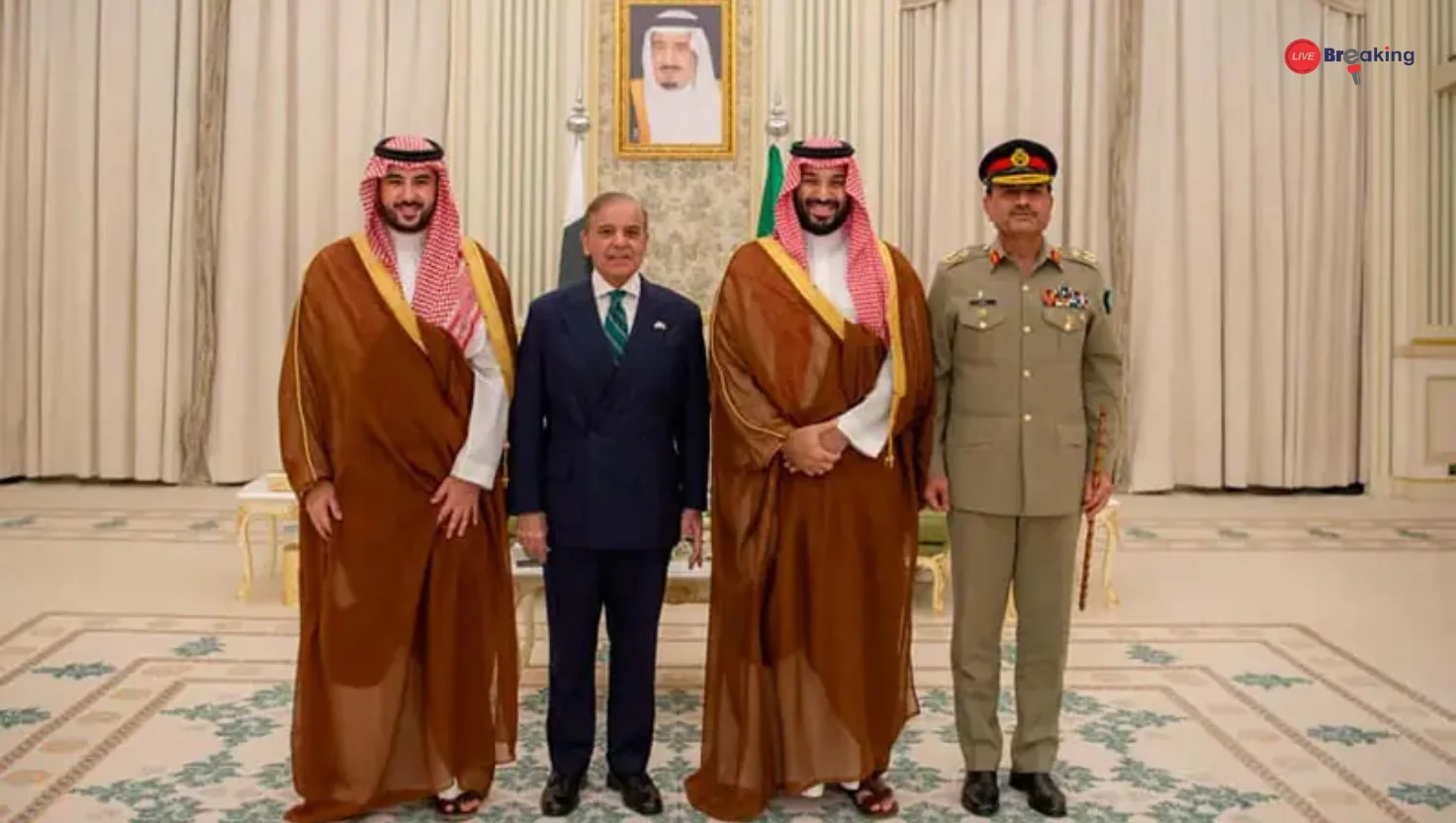“Any Aggression Against Either Country…”: Key Clause In Pak-Saudi Pact
Pakistan and Saudi Arabia have reaffirmed their decades-old alliance with a new security pact that includes a powerful clause: any act of aggression against either country will be treated as an attack on both. The landmark pledge signals a deepening of defense and strategic ties between the two nations and positions them as stronger partners in a region facing evolving security challenges.
A Historic Bond Strengthened
The relationship between Pakistan and Saudi Arabia is built on religious, cultural, and strategic foundations. For decades, Saudi Arabia has supported Pakistan economically, while Pakistan has provided military expertise and manpower to the Kingdom. Pakistani troops have historically been stationed in Saudi Arabia to assist with training and security, while Saudi aid has often helped Pakistan during times of economic crisis.
The new pact goes a step further by formalizing military cooperation in a way that echoes mutual defense arrangements seen among other global alliances. By stating that any aggression against one will be met by a joint response, both countries have signaled an unprecedented level of commitment to each other’s security.
The Key Clause: A Mutual Security Guarantee
The inclusion of a mutual defense clause carries weight not just for Pakistan and Saudi Arabia, but also for their neighbors and rivals. It effectively means that both countries are pledging to stand shoulder-to-shoulder against external threats. In practical terms, this could involve joint military action, intelligence sharing, or coordinated defense strategies if either side comes under attack.
Analysts view this as a significant step toward formalizing what has often been described as a “brotherly relationship” into a structured, enforceable framework. It sends a message to adversaries that neither Pakistan nor Saudi Arabia will face security threats in isolation.
Regional Implications
The Middle East and South Asia remain regions of high volatility. Saudi Arabia has been navigating complex relations with Iran, while Pakistan has faced tensions with India, border issues with Afghanistan, and growing security concerns linked to terrorism. In such an environment, the mutual defense clause strengthens both countries’ deterrence capabilities.
The pact also comes at a time when global power dynamics are shifting. As Saudi Arabia diversifies its partnerships and Pakistan seeks greater strategic backing, this deal provides a foundation for both to assert themselves more confidently on the international stage.
Beyond Defense: Strategic Cooperation
While the security clause is the most striking feature, the broader agreement is likely to involve expanded collaboration in areas such as defense technology, intelligence sharing, and military training. Pakistan’s armed forces, known for their professionalism, have long provided expertise to the Kingdom. This pact could pave the way for more joint exercises, defense production projects, and capacity building.
Read more: Trump Surprise Midnight Greeting for PM Modi: More Than Just a Birthday Wish?
Additionally, closer security cooperation often leads to stronger economic and diplomatic engagement. Both sides may see this pact as an anchor for wider collaboration in trade, investment, and energy security.
A Signal to the World
The wording of the pledge — “any aggression will be met together” — is not just symbolic; it is a declaration of solidarity in the face of external threats. For Saudi Arabia, it ensures a trusted partner in South Asia, while for Pakistan, it guarantees continued support from one of the most influential states in the Muslim world.
It also sends a message to global powers that the two nations are determined to safeguard their sovereignty and will not hesitate to act jointly if pressured by regional rivalries or external interference.
Challenges Ahead
Despite the symbolic power of the pact, challenges remain. Mutual defense clauses demand clear frameworks for implementation. Questions such as the scale of military involvement, decision-making processes during crises, and the scope of threats that trigger a joint response will need to be clarified.
Both countries also face internal pressures. Pakistan continues to deal with political instability and economic fragility, while Saudi Arabia is balancing reforms under its Vision 2030 program with traditional security concerns. How these domestic factors shape the practical execution of the pact will be closely watched.
Read more: Sushila Karki Or Kulman Ghising? Nepal’s Gen Z Protesters’ Big Choice
A Turning Point in Bilateral Ties
For Pakistan and Saudi Arabia, this pact marks a new chapter. It strengthens their long-standing alliance by turning shared sentiments of brotherhood into concrete commitments of defense and solidarity. In a world where alliances are increasingly tested by shifting geopolitical realities, the mutual defense clause demonstrates that both countries are willing to invest in each other’s security and stability.
The message is clear: Pakistan and Saudi Arabia will not stand alone in the face of aggression. Together, they are prepared to defend their sovereignty, safeguard their people, and project strength in an uncertain region.















